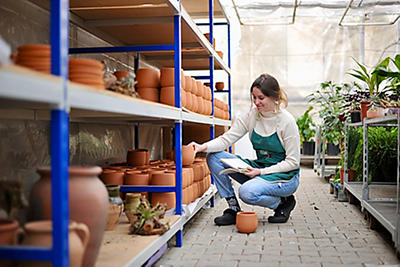Carla Oates founded inner-health brand The Beauty Chef in her Bondi kitchen – which she’s now working to have carbon-neutral by 2026.
“When I launched my first product, Glow beauty powder, in 2009 there was no ‘inner beauty’ category in department stores. They loved it but didn’t know where to put it on shelves. So I had to push and educate people, which has made me stronger and more resilient. Now The Beauty Chef is stocked at David Jones, Bloomingdales, Mecca and more. Before people have even put on moisturiser or makeup in the morning, they whip up a Glow smoothie for their skin.
I started the brand with $3000 and for a long time I did everything myself. A designer offered to create my logo and website in exchange for some product and I convinced a manufacturer to produce minimum runs. Family and friends invested in the business and after we turned over $10 million, I procured a private equity partner.
Early on I was lucky to meet Rob Hunt, the former CEO of TVSN; he was looking for interesting new brands to put on home shopping TV back then. He approached me and said, ‘I’ve heard about your magical purple powder.’ I still go on TVSN; it’s a great place to talk authentically about your product.
Sustainability is so important. We use certified organic, biodynamic and local ingredients, wherever possible. Even our marine collagen peptides are from wild-caught North Atlantic cod.
We’re aiming to be carbon-zero by 2026 and are setting up a fermentation plant in Sydney, which is no easy feat. To make optimal and potent probiotic products, the environment must be pH-and temperature-controlled... the works. I feel responsible as a business owner and that I need to do my part for the planet.”
Help & support


